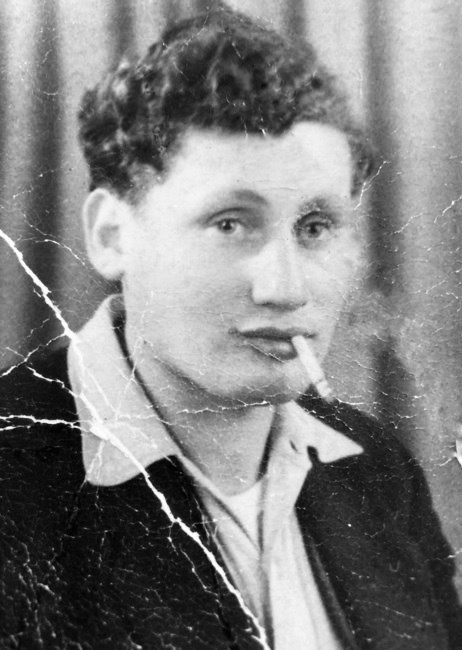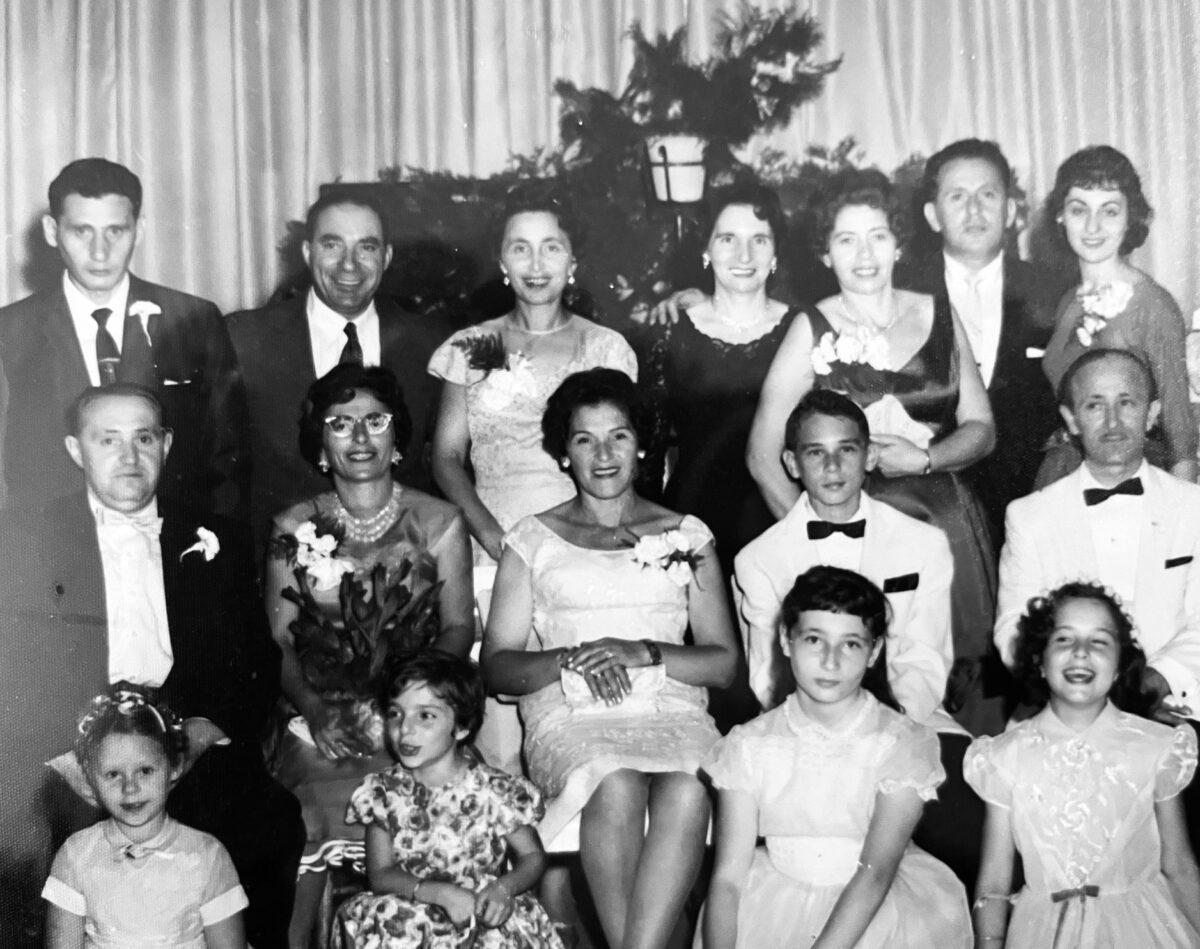Herman (Chamel) Weinstein, my uncle, was the last member of his extended family to leave this vale of tears.
Herman died on May 1, exactly 104 years after his birth in Poland. Having reached a very ripe old age, he lived way past his “expiry” date, at least as far as his Nazi tormentors were concerned.
A Holocaust survivor, he experienced the terror of Nazi oppression in both the Lodz ghetto and a succession of German concentration camps in Poland. He was part of a unique and doomed generation of Polish Jews who had the misfortune to witness the cruelty of antisemitism in Poland and German genocide.
He lived briefly in Canada before immigrating to the United States, where he and his wife, Marilyn, raised three children, Abraham, Paula and Miriam.
Herman, the youngest person in the Weinstein clan, died almost eight years after the passing of his beloved sister and my mother, Genia, who made it to the age of 101. Herman’s younger sister, Sarah, and his older brother, Simon, passed away many years before.
Herman belonged to a special breed. He was one of 245,000 Holocaust survivors around the world, of whom 16 percent reside in the United States and of whom 20 percent are older than 90.
In many respects, age was merely a number for him. Until quite recently, Herman was in trim physical condition and was an unusually good walker. On his occasional visits to my parents’ condo in Sunny Isle, Florida, he would often do push-ups in the living room and venture out on long walks.
Herman appeared and reappeared in my life from the time I was a toddler.
I last met Herman at my mother’s funeral in Toronto in May 2016, when he was a spry 96. Herman looked terrific for his age. But after falling off his bicycle several years ago, his health declined markedly.
Regrettably, I know very little about his youth in Poland or his trials and tribulations in Lodz after Germany’s conquest of Poland in 1939. I don’t know how he managed to survive, since he rarely discussed his ordeal. Not surprisingly, he held a lifelong grudge against the Germans as well as the Poles.

Herman arrived in Canada a few years after my parents and I immigrated in the winter of 1948 after spending about three years in a displaced persons camp in western Germany. We settled down in Montreal, where my father worked as a tailor and a foreman in a ladies’ garment factory.
Herman, for a while, was employed in the clothing industry too. He quit because he disliked it with a passion. Having thrown caution to the wind, he went to Newfoundland, where he was a manual worker for an undetermined period of time.
Herman left Canada around the mid-1950s, having heeded the advice of his brother Simon, the proprietor of a men’s wear store in New Jersey. Eventually, Herman settled down in Patterson, a working-class town in the state, and found a job as a manual laborer in a chemical plant. Rising in the ranks, he was promoted to an operational position on the factory floor. It was hard work, but it provided him with a steady income.
Over the years, Herman would visit Montreal on special occasions, like my bar mitzvah, my sisters’ weddings, and major Jewish holidays. He enjoyed my mother’s Polish-style home cooked meals. He was especially fond of her sauerkraut and potato soup, her meatballs in a sweet-and-sour sauce, and her apple cake and sugar cookies, all of which I equally savored.

Herman liked conversing with my mother in Yiddish, but he was neither a voluble person nor a big talker. Silence usually enveloped him. He lacked, I think, the gift of friendship, a deficiency that runs in the family. So my relationship with him was rather limited, even at the best of times.
Nevertheless, he could be outspoken, brusque and inappropriate to the point of rudeness. He was a lot like a Sabra, a native-born Israeli. Prickly on the outside, he was apparently soft inside. Yet he was gentle and deferential with my mother, who treated him like her little brother and overlooked his shortcomings.
However, for some strange reason, Herman barely got along with my father, David. There was a rivalry between them that I never understood.
Herman was politically engaged in the sense that he kept abreast of current events. He was deeply attached to Israel, where one of his daughters lives, and he travelled there quite frequently.
Conservatively inclined, he was an admirer of Menachem Begin, the first leader of the right-wing Likud Party and Israel’s prime minister from 1977 until 1983. Indeed, he kept a photograph of Begin in his home in Fairlawn, New Jersey.
At his funeral in Hackensack, New Jersey, Herman was described as stubborn, tough, straight-talking and fearless. These were among the qualities that enabled him to carve out a life in America despite the mental wounds of the Holocaust, the most unimaginable atrocity of the 20th century.
This event left an indelible impression on him and, to a degree, shaped his personality.
